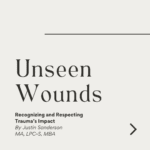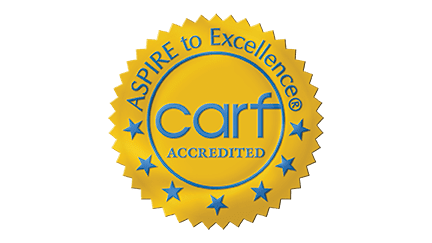Trac9
Trac 9: Measuring and Tracking Patient Outcomes
We live in a data-driven world. It seems that everything today is tracked, measured, and quantified. And this is for good reason – because without measurement, how can we know what we are doing is working? How can we see our progress?
While anecdotal evidence of a program working may be enough for some, it’s not for us. That’s why we work with Trac9 Informatics – a leader in clinical evaluation and assessments. The team at Trac9 Informatics is committed to improving the lives and clinical outcomes for those in treatment for mental health and substance use disorders through evidence-based science.

What is Trac9?
Here’s How it Works
While in our care, clients complete a confidential weekly assessment which measures variables associated with sustained and long-term sobriety. The algorithm uses these variables, demographics, factors, and risk ratios to help measure a client’s progress. We can also use the information gathered to adjust treatment plans based on a client’s unique needs.
Trac9: Factors We Track and Measure
The Trac9 platform helps monitor both resilience and pathology factors. Both have a scientifically validated and evidence-based association with long-term recovery. Both types of factors are also equally important in your recovery journey.
Resilience Factors:
- Commitment to Sobriety: Successful sobriety involves more than just the desire not to drink or use – it also involves hard work.
- Spirituality: Spirituality can be complex and fluid, but it plays a huge role in the recovery process.
- Optimism: Assesses individual differences in generalized optimism versus pessimism.
- Quality of Life: Sobriety impacts the overall wellness in all aspects of one’s physical, mental, and social life.
Pathology Factors:
- Depression: “Am I depressed because I rely upon substances, or do I rely upon substances because I’m depressed?”
- Anxiety: Anxiety is the reaction to stressful, dangerous, or unfamiliar situations that can interfere with leading an everyday functioning life.
- Verbal Craving: Verbal craving is the verbal manifestation of intense feelings of wanting to drink or use.
- Visual Craving: Visual cues can have a powerful ability to stimulate intense feelings of want.
- Stress: Stress is a key risk factor in addiction initiation, relapse, and maintenance of recovery.
Tracking Progress After Treatment
We all know that sobriety isn’t a finish line but more of a journey. So why would we stop measuring the effectiveness of our program when someone completes residential treatment?
For 12 months following residential care, clients are encouraged to complete a monthly assessment. This confidential form can be filled out anywhere and takes less than five minutes to complete. The information it provides is invaluable because it helps us continue to compare our methods to patient outcomes, advance research to better understand substance use disorder and learn how to treat it more effectively.
Trac9 FAQ
Are my questionnaire answers confidential?
Absolutely. All data we collect is protected health information and will be handled according to the HIPAA Privacy Rules.
How long do assessments take?
On average, it takes only about 13 minutes to complete the in-treatment survey. Most can complete the post-treatment survey in less than five minutes.
How will you use my assessment data for treatment?
Data collected while in-treatment helps us assign counselors that best fit a client’s needs, create an individualized treatment and aftercare and even advocate with insurance companies on a client’s behalf. Post-treatment data helps us monitor long-term treatment success and gives clients a direct option to reach out if they feel they are struggling.
What will my answers be used for besides guiding my treatment?
In-treatment and post-treatment data helps us measure the effectiveness of our treatment program and improve treatment for others following in your footsteps. Your input can help advance the science of addiction medicine and that is a great legacy.





